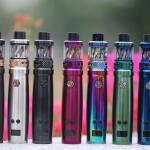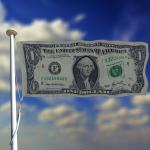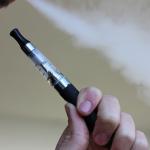When we talk about Chinese exports to the U.S., the concern most often revolves around fentanyl and other highly addictive drugs or the loss of jobs and economic power.
JUUL
Working for the “opposition” is neither new nor restricted to regulators. Many criminal defense attorneys learned their trade as prosecuting attorneys.
Teenagers have no business using electronic cigarettes. Public health officials, scientists and even companies that manufacturer and sell e-cigarettes should do all they can to prevent teen vaping.
Time for a riddle:
Q: What is the difference between Pez and Juul?
It began with the Daily Mail in the UK reporting on a lead from Instagram of a Florida teen whose lung collapsed from vaping. What a great story in this media environment, if only it were true.
One of the biggest problems with journalism -- particularly science journalism -- is the fact that many people who practice it aren't qualified to do so.
Everyone agrees smoking is bad these days but how to end it has become its own cultural war, and the warring sides have come down along predictable lines.









